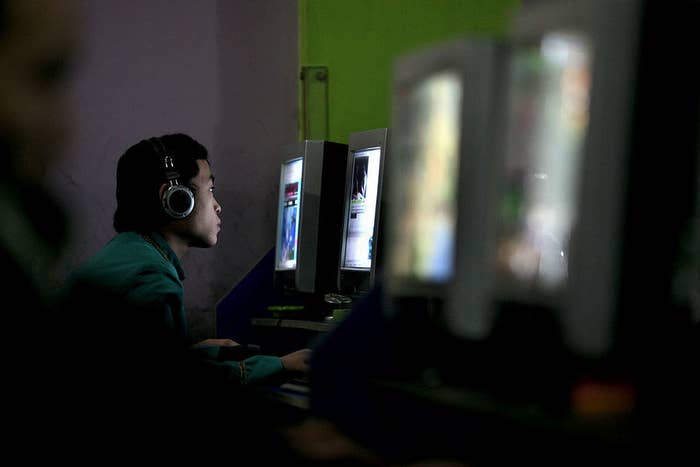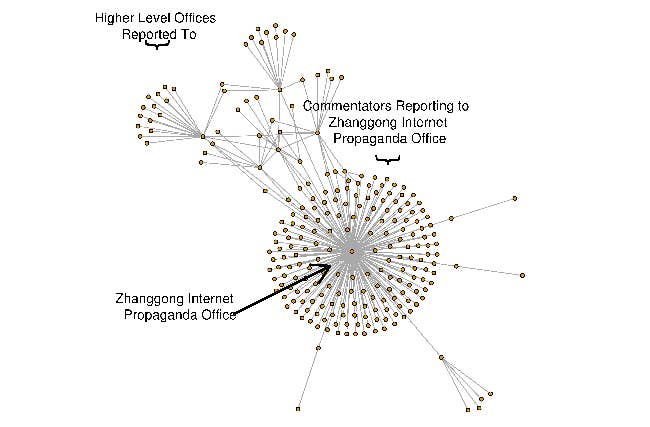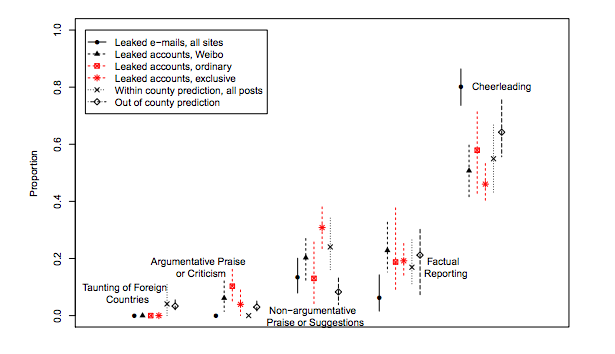
For years it's been assumed that China hires online commentators to influence public opinion on controversial issues.
Some estimates have guessed that as many as two million people are dutifully toeing the party line in discussions across the web. Chinese internet users coined a name for these supposed users: the "50-cent party," based on the rumor that the government pays them 50 cents ($0.08 in U.S. dollars) for each comment. But a new study just showed that everyone might have had the wrong idea about China's online cheerleaders.
"I think there is no such thing as the '50-cent party,' actually they are just government employees," Gary King told BuzzFeed News in a phone interview. King, a distinguished political scientist at Harvard University specializing in data analysis of information control, headed a three-person team that conducted the first deep research into these commenters.
The study, published on Tuesday on the university's website, came to that conclusion after analyzing over 2,000 emails leaked from a district Internet Propaganda Office and identifying more than 43,000 comments and their authors, who are said to be mostly contributing part-time outside of their regular jobs. It also estimates an astronomical number of posts — 488 million — are fabricated by these government employees throughout China in a year, based on a variety of factors including population and internet penetration rate.

Even the authors were surprised that, according to their results, the government commentators weren't jumping into debates and persuading people to hew to the government line — a frequent accusation against people believed to be 50-cent party members.
In fact, they seem more interested in acting as boosters for the state and trumpeting their own patriotism, but avoiding controversial topics. (The exception is posts calling for citizens to take action, which as King puts, is "like [when] your hair's on fire and you have to do something right away.") That way, the government also gets to keep records of genuine public opinion on controversial issues.
"They don't argue in part because criticism is useful for them, for example to know which officials receive the most complaints and which to promote," King said.
The team behind the study usually focuses on Chinese censorship and published several papers on the subject before a large batch of emails from the Internet Propaganda Office of Zhanggong, a district of Ganzhou City with a population of less than half a million, leaked online in 2014. Many of the emails — released by an anonymous blogger, who the Harvard team didn't have contact with — contain attachments giving reports about the staff's efforts to seed pro-government comments throughout the Internet. But "exactly zero" comments have been found to fall into the categories of "taunting of foreign countries" or "argumentative praise or criticism," according to the paper.

In order to verify the accuracy of their study, the researchers reached out through direct messages to users who matched the indicators they'd gleaned from the Zhanggong emails. The researchers used specific language as a sort of shibboleth that they learned from the leaked emails: "I saw your comment, it's really inspiring, I want to ask, do you have any public opinion guidance management, or online commenting experience?" They compared the number of known government commentators who responded "yes" with those they suspected worked for the government. The correlation between the two was high enough that the researchers feel their indicators reveal "a strong signal of actual 50c party membership."
If that's the case, it solves a huge mystery in China. The identities of "50-cent Party" members are so mysterious that in 2012, Ai Weiwei once proposed an iPad as compensation for one of their ranks coming forward. An alleged 50-cent Party member said in response that "you could say we're like directors, influencing the audience through our own writing, directing and acting." King thinks such a thing is possible but that it's also "unlikely" that such a large-scale operation could fall under their radar after the researchers looked through millions of Weibo posts with quantitative automation tools. But the paper acknowledged that no method exists so far to detect government commentators beyond the guidelines they gleaned from the Zhanggong emails and said that there's still chance that "50-cent Party" exists and reports to the government using completely different methods.
It's fairly easy to find recruitment drives and information posted on government websites for internet commentators. A recent example can be found on the government website of Shou County in eastern China's Anhui Province, where the county government congratulates itself for among the "Top Ten Internet Commentators of 2015." They further praised themselves for having "accurately grasped the directions of public opinions, highlighted the central theme of the times and encouraged positive energies" and "actively replied to internet posts," all of which is in accordance with the findings of the Harvard study.
"These are very sophisticated activities," said King, "and the fact that they are capable to do so is enormous."
